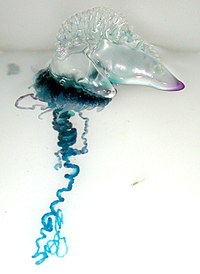
Administration of a vasoactive intestinal peptide antagonist enhances the autologous anti-leukemia T cell response in murine models of acute leukemia
Sign Up to like & getrecommendations! Published in 2017 at "OncoImmunology"
DOI: 10.1080/2162402x.2017.1304336
Abstract: ABSTRACT Vasoactive intestinal peptide (VIP) is a neuroendocrine peptide hormone that has potent anti-inflammatory activities. VIP signaling through its receptor VPAC1 on T cells leads to reduced proliferation and a reduction in pro-inflammatory cytokine secretion.… read more here.
Keywords: peptide antagonist; response murine; anti leukemia; intestinal peptide ... See more keywords

Abstract LB016: Immunotherapeutic potential of ST316, a peptide antagonist of β-catenin
Sign Up to like & getrecommendations! Published in 2023 at "Cancer Research"
DOI: 10.1158/1538-7445.am2023-lb016
Abstract: The transcription factor β-catenin is a key player in many cellular processes, including stem cell renewal, cellular homeostasis and inflammation. Deregulation of β-catenin occurs frequently in several cancer types by mutation or overexpression of the… read more here.
Keywords: st316; potential st316; tumor; catenin ... See more keywords

Abstract LB236: ST101, a peptide antagonist of novel I/O target CEBPβ,reprograms MDSCs and promotes an immunoactive tumor microenvironment
Sign Up to like & getrecommendations! Published in 2023 at "Cancer Research"
DOI: 10.1158/1538-7445.am2023-lb236
Abstract: CCAAT/Enhancer Binding Protein β (C/EBPβ) is a basic leucine zipper (bZIP) transcription factor that causes aberrant gene expression in many cancers. Upregulated or overactivated C/EBPβ drives oncogenesis by promoting tumor survival and proliferation and is… read more here.
Keywords: cell; tumor microenvironment; expression; st101 ... See more keywords